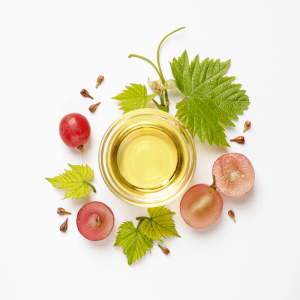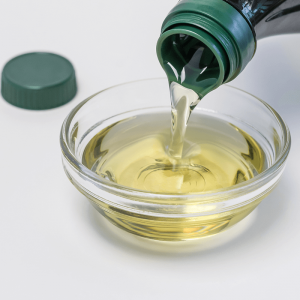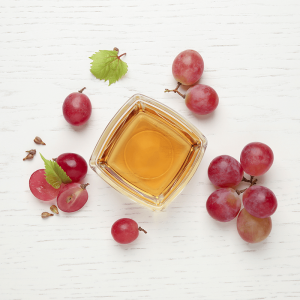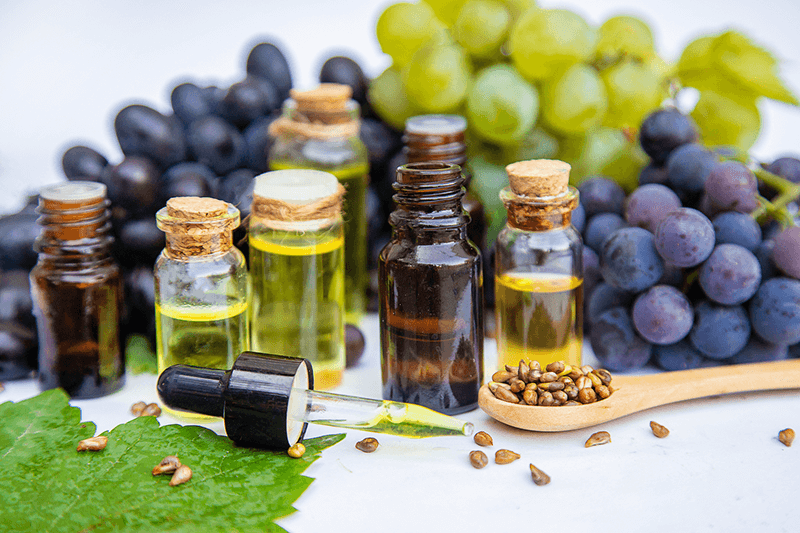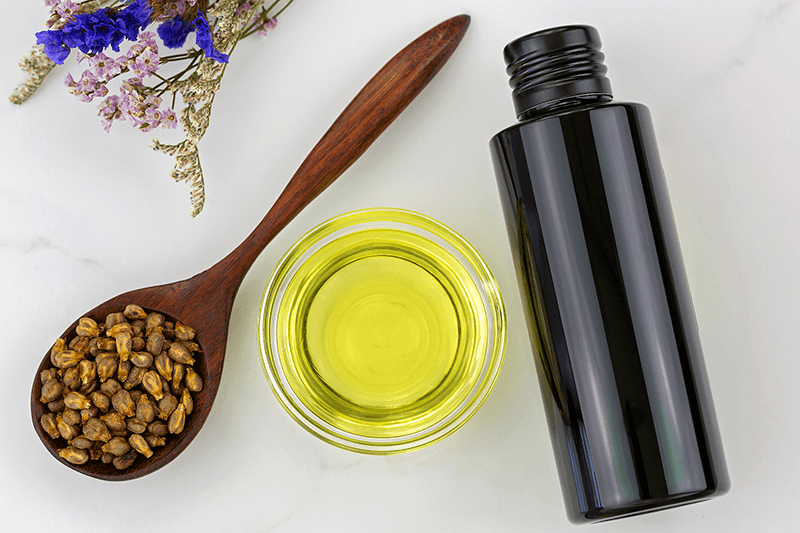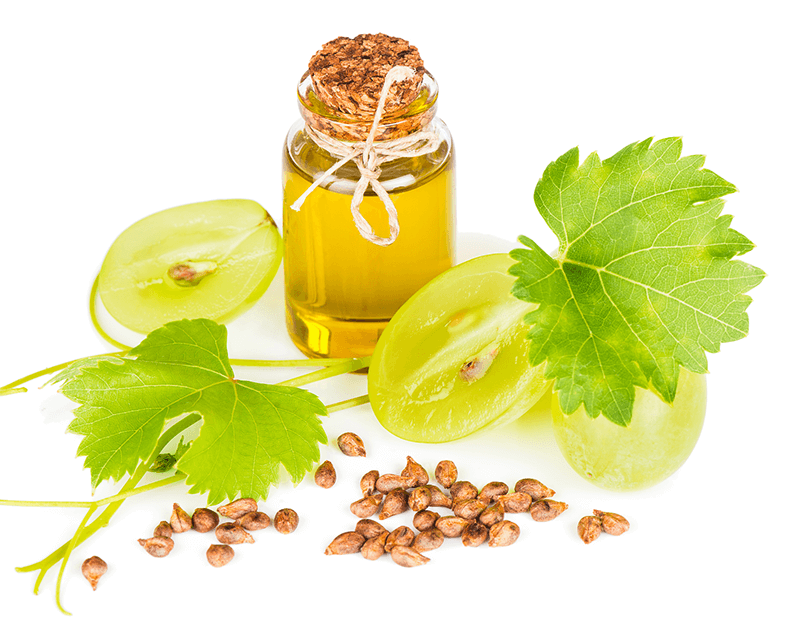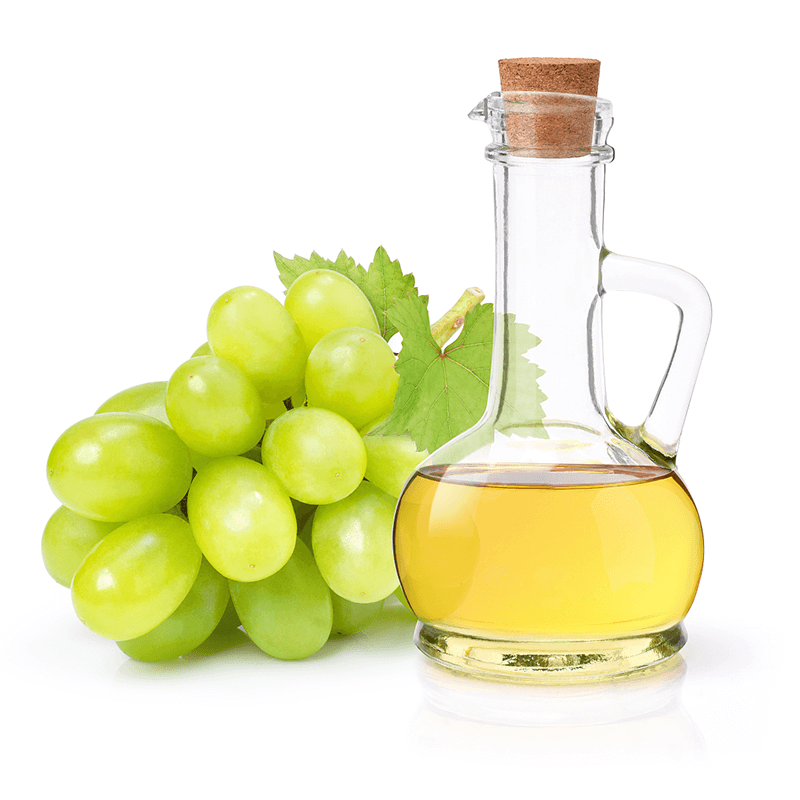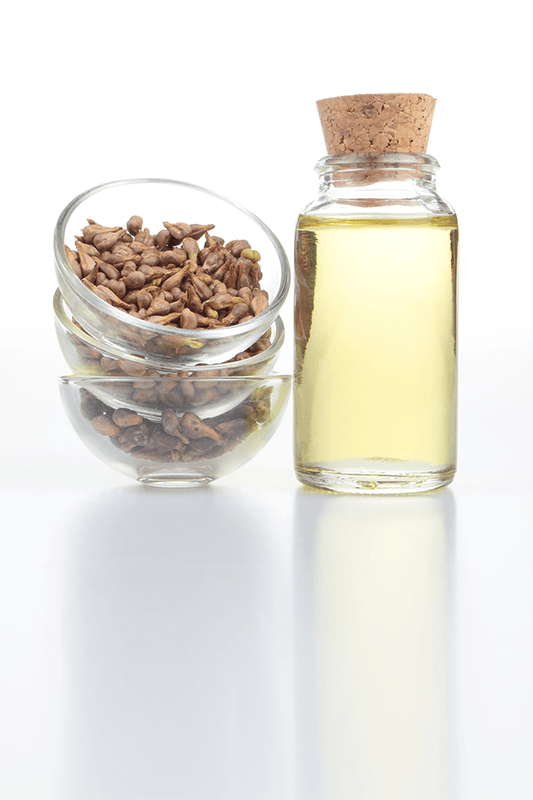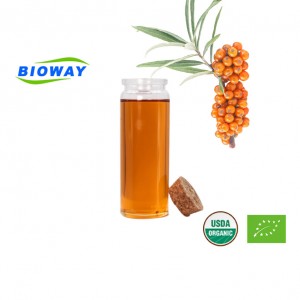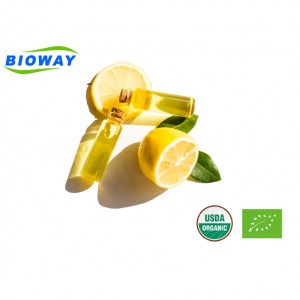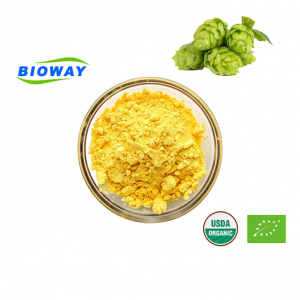Pure Cold-pressed Grape Seed Oil
Pure Cold-pressed Grape Seed Oil is a type of vegetable oil obtained by pressing the seeds of grapes with a cold-pressing method. This ensures that the oil retains its natural properties as it is not exposed to heat or chemicals during the extraction process. It is typically extracted from grape seeds left over during the winemaking process. The oil has a light, neutral flavor and a high smoke point, making it suitable for various culinary applications. Pure grape seed oil is known for its high levels of polyunsaturated fats, including omega-6 fatty acids, as well as antioxidants like vitamin E and proanthocyanidins. It is often used in cooking, salad dressings, marinades, and as a base oil in skincare products due to its moisturizing and antioxidant properties. When purchasing pure grape seed oil, it's important to choose a product that is free of additives, fillers, and artificial ingredients.
| Across Gramineus Oil | Grape Seed Oil |
| Place of Origin | China |
| Type | Pure Essential Oil |
| Raw Material | Seeds |
| Certification | HACCP, WHO, ISO, GMP |
| Supply Type | Original Brand Manufacturing |
| Brand Name | Herbs Village |
| Botanical Name | Apium graveolens |
| Appearance | Yellowish to a greenish brown clear liquid |
| Odor | Fresh herbal green phenolic woody odor |
| Form | Clear liquid |
| Chemical Constituents | Oleic, Myristic, Palmitic, Palmitoleic, Stearic, Linoleic, Myristoleic, Fatty Acids, Petroselinic |
| Extraction Method | Steam distilled |
| Mixes well with | Lavender, Pine, Lovage, Tea Tree, Cinnamon Bark, and Clove Bud |
| Unique features | Antioxidant, antiseptic (urinary), anti-rheumatic, antispasmodic, aperitif, digestive diuretic, depurative & stomachic |
Pure grape seed oil offers several notable product features. Here are some key features:
1. Pure and Natural: As the name suggests, pure grape seed oil is derived purely from grape seeds without any additives or adulterations. It is a natural product with no synthetic ingredients.
2. High-Quality Extraction: The oil is obtained through a process known as cold-pressing, which helps retain the natural properties and nutrients of the grape seeds. This extraction method ensures that the oil is minimally processed and maintains its nutritional value.
3. Light Flavor: Grape seed oil has a light, neutral flavor that doesn't overpower the taste of food. It enhances dishes without altering their natural taste, making it a versatile option for various culinary applications.
4. High Smoke Point: One of the key advantages of grape seed oil is its high smoke point, typically around 420°F (215°C). This means it can withstand high-temperature cooking methods like frying and sautéing without smoking or developing a burnt taste.
5. Nutritional Profile: Pure grape seed oil is rich in polyunsaturated fats, particularly omega-6 fatty acids like linoleic acid. It also contains antioxidants such as vitamin E and proanthocyanidins, which have been associated with various health benefits.
6. Versatility: Grape seed oil is a versatile oil that is widely used in cooking, baking, salad dressings, and marinades. Its mild flavor makes it suitable for a wide range of dishes.
7. Moisturizing and Antioxidant Properties: Due to its high concentration of antioxidants and vitamin E, grape seed oil is often incorporated into skincare products. It helps moisturize the skin, promotes elasticity, and protects against free radicals that can cause damage.
It's important to note that product features may vary depending on the brand or manufacturer. When purchasing pure grape seed oil, it's recommended to read the product label and ensure that it meets your specific requirements.
The pure grape seed oil has various potential health benefits due to its nutrient profile. Some of the key health benefits associated with pure grape seed oil are:
1. Antioxidant properties: Grape seed oil contains high levels of antioxidants, particularly proanthocyanidins and vitamin E. These antioxidants help protect the body from oxidative stress and free radical damage, which can contribute to chronic diseases such as heart disease and cancer.
2. Heart health: The polyunsaturated fats, including omega-6 fatty acids, found in grape seed oil may have positive effects on heart health. These fats can help reduce LDL (bad) cholesterol levels and increase HDL (good) cholesterol levels, thereby promoting cardiovascular health and reducing the risk of heart disease.
3. Anti-inflammatory effects: The presence of polyphenols and antioxidants in grape seed oil may help reduce inflammation in the body. Chronic inflammation is associated with various health problems, including diabetes, arthritis, and certain types of cancer.
4. Skin health: Pure grape seed oil is commonly used in skincare products due to its moisturizing properties. It is easily absorbed by the skin without leaving a greasy residue. The antioxidants present in the oil can also help protect the skin from free radical damage and promote a healthy complexion.
5. Hair health: Grape seed oil can be beneficial for hair health and may help improve scalp conditions such as dandruff and flakiness. Its moisturizing properties can help nourish the hair and reduce breakage.
It's important to note that while pure grape seed oil has potential health benefits, it is still a calorie-dense oil and should be consumed in moderation as part of a balanced diet. People with specific health conditions or allergies should consult with a healthcare professional before incorporating pure grape seed oil into their routine.
The pure grape seed oil product application industry encompasses a wide range of sectors due to the various potential uses and benefits of the oil. Some common applications include:
1. Pharmaceuticals and health supplements: Grape seed oil is often used as an ingredient in dietary supplements and health products due to its antioxidant properties and potential health benefits, such as supporting heart health and reducing inflammation.
2. Cosmetics and skincare: Pure grape seed oil is commonly used in skincare products, including moisturizers, serums, and facial oils. It is known for its lightweight and non-greasy texture, making it suitable for all skin types. It is believed to help moisturize the skin, reduce the appearance of wrinkles, and protect against environmental damage.
3. Haircare products: Grape seed oil is also utilized in the haircare industry. It is often found in hair serums, conditioners, and leave-in treatments due to its ability to moisturize the hair, reduce frizz, and promote shine.
4. Food and culinary: Pure grape seed oil can be used in culinary applications, such as salad dressings, marinades, and cooking oils. It has a mild and neutral flavor, making it versatile for a range of recipes. Additionally, its high smoke point makes it suitable for high-temperature cooking methods like frying.
5. Massage and aromatherapy: Due to its light texture and skin-friendly properties, grape seed oil is commonly used in the massage and aromatherapy industry as a carrier oil. It can be blended with essential oils to create customized massage oils or used on its own for general moisturization and relaxation.
6. Industrial applications: In some cases, pure grape seed oil is used in industrial settings, such as in the production of lubricants, biofuels, and bio-based polymers.
It is worth noting that the regulations and standards for each industry sector may vary. Therefore, it's important for businesses operating in these industries to comply with relevant regulations and ensure the quality and purity of their grape seed oil products.
Here is a simplified process flow chart for the production of pure grape seed oil:
1. Harvesting: Grapes are grown in vineyards and harvested when fully ripe.
2. Sorting and Washing: The collected grapes are sorted to remove any damaged or unripe grapes. Then, they are thoroughly washed to remove dirt and contaminants.
3. Grape Seed Extraction: The grapes are crushed to separate the seeds from the pulp. The grape seeds contain oil-rich kernels.
4. Drying: The extracted grape seeds are dried to reduce moisture content, typically through a drying process such as air drying or using specialized drying equipment.
5. Cold Pressing: The dried grape seeds are pressed to extract the crude grape seed oil. This can be done using a hydraulic press or an expeller press. Cold pressing ensures that the oil retains its natural properties, as it doesn't involve high heat or chemical solvents.
6. Filtration: The extracted oil is filtered to remove any impurities or solid particles. This helps to achieve a clearer and purer end product.
7. Refining (optional): Depending on the desired purity and quality, the crude grape seed oil may undergo a refining process, which typically involves processes like degumming, neutralization, bleaching, and deodorization. Refining helps to remove any impurities or unwanted components from the oil.
8. Packaging: The pure grape seed oil is then packaged in suitable containers, such as bottles or jars, to ensure proper storage and shelf-life.
9. Quality Control: Throughout the production process, quality control measures are taken to ensure the purity, safety, and consistency of the grape seed oil product. This includes testing for contaminants, such as heavy metals or pesticides, as well as monitoring for overall quality parameters.
10. Distribution: The packaged pure grape seed oil is then ready for distribution to various industries or consumers.
It's important to note that this is a general overview, and the exact production process may vary depending on the specific manufacturer and their production methods. Additionally, specific regulations and standards must be adhered to in order to produce a high-quality and safe product.
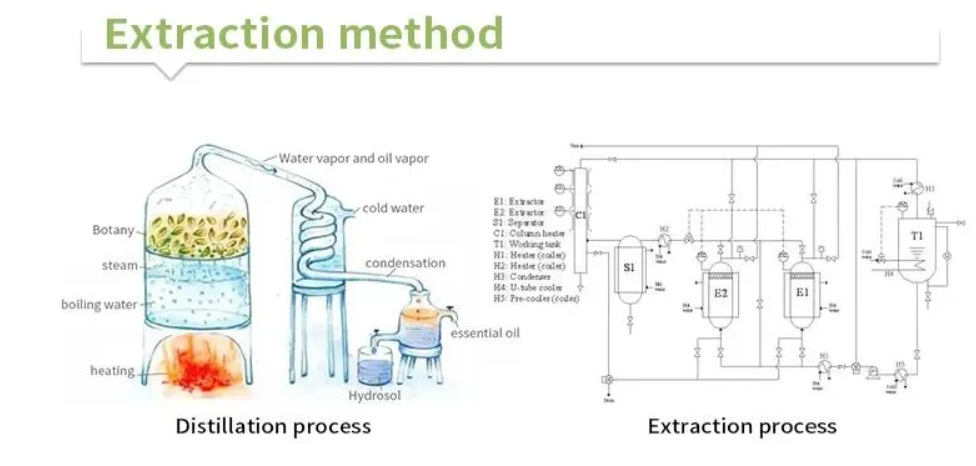
Storage: Keep in a cool, dry, and clean place, Protect from moisture and direct light.
Bulk Package: 25kg/drum.
Lead Time: 7 days after your order.
Shelf Life: 2 years.
Remark: Customized specifications also can be achieved.
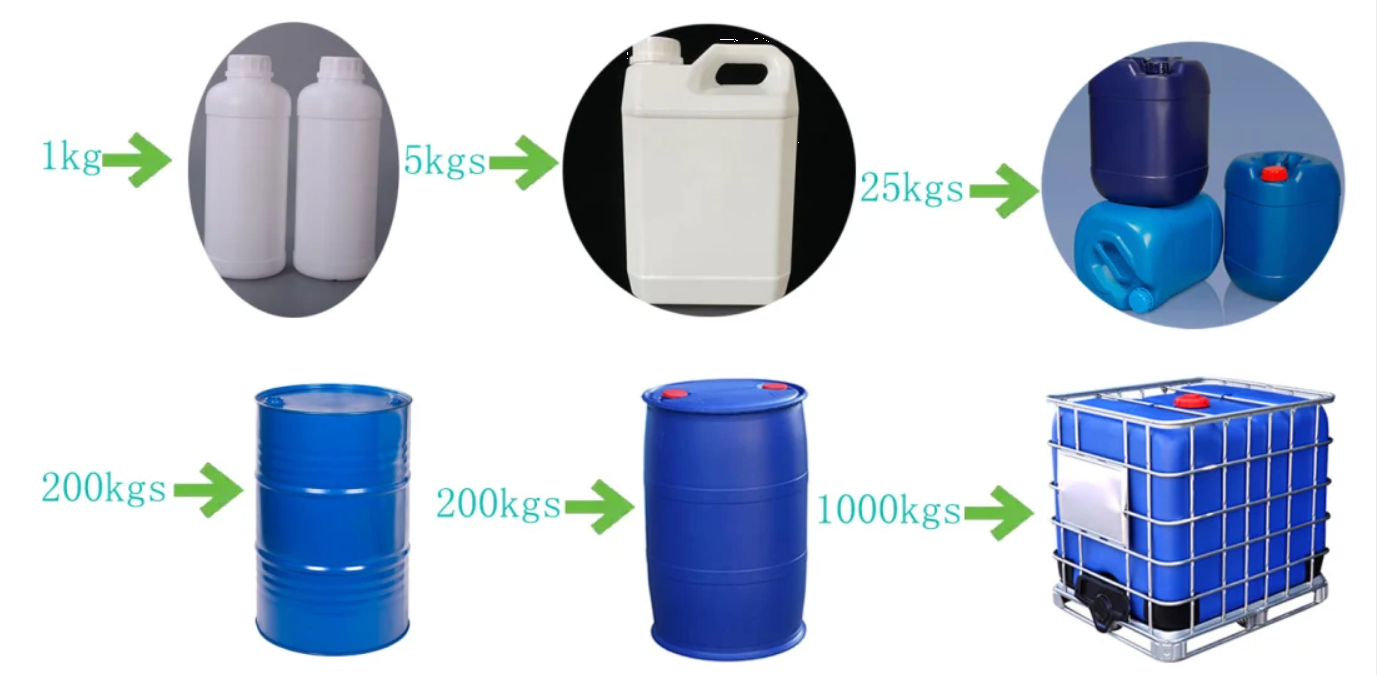
Express
Under 100kg, 3-5Days
Door to door service easy to pick up the goods
By Sea
Over300kg, Around 30 Days
Port to port service professional clearance broker needed
By Air
100kg-1000kg, 5-7Days
Airport to airport service professional clearance broker needed

Pure cold-pressed grape seed oil is certified by USDA and EU organic, BRC, ISO, HALAL, KOSHER, and HACCP certificates.

While pure cold-pressed grape seed oil has many benefits and uses, it also has a few potential disadvantages to consider:
1. Allergies: Some individuals may have allergies or sensitivities to grape seed oil. It is derived from grapes, which can be a common allergen for some people. If you have known allergies to grapes or other fruits, it is important to be cautious when using grape seed oil and consult with a healthcare professional if needed.
2. Stability: Compared to some other oils, grape seed oil has a relatively low smoke point, which means it can break down and produce smoke when exposed to high heat. This can lead to a change in flavor and nutritional properties and poses a risk of producing potentially harmful compounds. Therefore, it is best to use grape seed oil in low to medium heat cooking applications to maintain its integrity.
3. Sensitivity to Light and Heat: Grape seed oil is relatively sensitive to light and heat, which can cause it to oxidize and become rancid more quickly. It is important to store the oil properly in a cool, dark place and use it within its recommended shelf life to maintain freshness and prevent any negative effects.
4. Potential Contaminants: Depending on the production and sourcing methods, there is a possibility of contaminants such as pesticides or heavy metals being present in grape seed oil. It is important to choose a reputable brand that prioritizes quality control and testing to minimize the risk of these contaminants.
5. Lack of Nutritional Information: Pure grape seed oil does not contain significant amounts of essential nutrients such as vitamins or minerals. While it is a source of healthy fats, it may not provide additional nutritional benefits beyond that.
6. Expensive: Cold-pressed grape seed oil can be relatively expensive compared to other cooking oils. This may hinder its affordability and accessibility for some individuals.
It is important to consider these potential disadvantages while assessing your specific needs and preferences before incorporating pure cold-pressed grape seed oil into your lifestyle.







